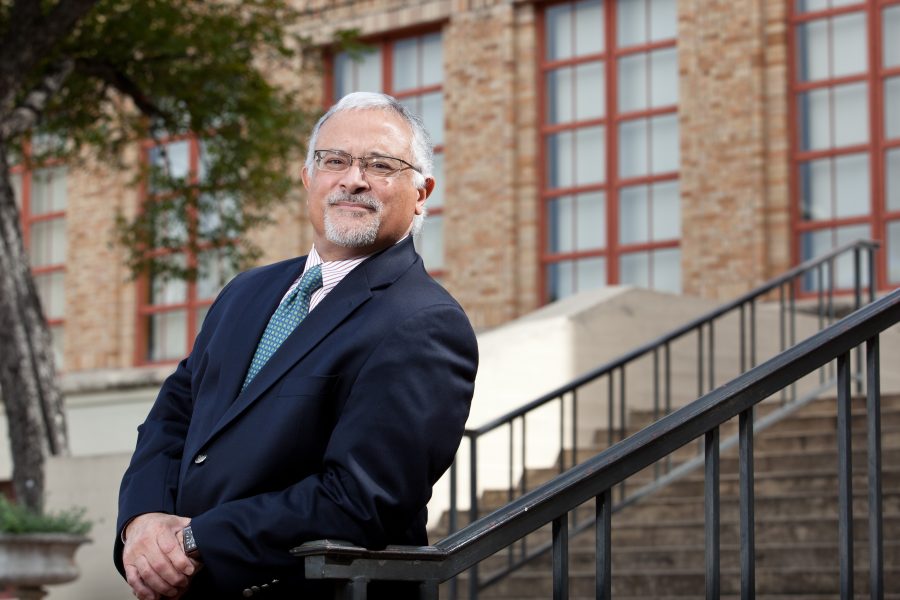Editor’s Note: This is one of a series of interviews with the deans of the 18 schools and colleges of the University. Social Work Dean Luis Zayas was appointed in 2012. This interview has been condensed.
The Daily Texan: So could you start by telling us a little bit about your plans and goals for the School of Social Work as well as some of the successes you’ve had since you were appointed dean in 2012?
Luis Zayas: What I had encountered when I first arrived was that it was top heavy at the full professor and associate professor ranks, and at the time when I arrived, there were only two assistant professors in a faculty of 30-something. So, to me that’s not good succession planning. Over the past three years, I’ve been able to fill in more assistant professor level positions and now we are up to seven assistant professors and a dozen each of the other two. Our school really needs new infrastructure, a new building or a well renovated one. Especially if we are to compete with the elite schools of social work.
DT: How have you been lobbying for a new building?
Zayas: One of the things we’ve done has been an architectural assessment of our building and they poked it and prodded it an lifted it and looked up the hood, poked the tires, that sort of thing. We hear that it has strong bones but the organs are failing. Lobbying is a good word. It’s helping others to understand our needs and where we should best be positioned.
DT: Speaking of the new medical school, how do you see the School of Social Work collaborating with them?
Zayas: We’ve already started. One of the things I’ve done in my administration is to appoint an assistant dean for health affairs, Dr. Barbara Jones… One of the things we are doing a lot, and nursing and pharmacy are deeply involved as well, is inter-professional education. How do we get our students talking to each other as professionals early on? You know, you ask any physician who they need on the team and most often they’ll say a social worker.
DT: Like certain other programs, including nursing, the School of Social Work has a low male enrollment. What is it trying to do to increase the number of male students?
Zayas: One of the things we need to do is reach out to the average undergraduate male and help them understand what social work is and what we do.
DT: Can you say a little bit about the newly established dual-degree program between the School of Social Work and Latin American Studies?
Zayas: The students will come in and they’ll do half and half at the schools… A student doesn’t just go into [Teresa Lozano Long Institute of Latin American Studies] or social work and then the second year bounce back. Rather, we integrate them early on so that they have a foot in both schools all along the way. In their field work placements, most of them will start out in local field internships, in organizations that serve large numbers of Latinos. In their fourth semester for the master’s student, they will then do a block placement in a Latin American country…The advantage for the student is that for those that want to work in Latin America will go with two terrific degrees to work there.
















